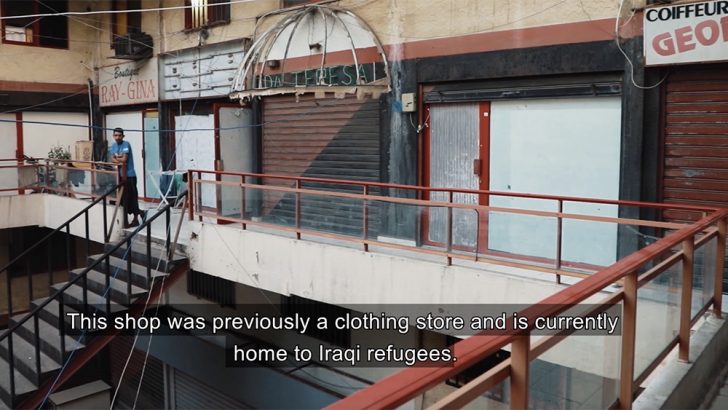In an abandoned mall on the outskirts of Beirut, an image of St Thérèse of Lisieux hangs in the window of what was once a storefront. This former clothing store now serves as home for Christian refugees who have been hit hard by the inflation caused by Lebanon’s severe economic depression.
The living conditions for the refugees who were forced to move to the abandoned mall were documented on video by A Demand for Action, a Sweden-based NGO that aids minorities in the Middle East.
“I came from Iraq in 2017 when ISIS invaded Iraq,” a man living in one of the former stores said in the video.
“We suffered from persecution against Christians, from terrorism, and kidnapping perpetrated by the militias, as well as the rape of Christian girls – or any girl who did not wear a veil or was wearing a cross. I was overwhelmed by fear and the great threat to my family and children, so I was forced to flee to Lebanon.”
He showed the nearly windowless room with sparse walls, except for some holy cards with images of the Virgin Mary and peeling paint from the ceilings.
“The place where I live now was previously a clothing store. There were no bathrooms or kitchen before; we tried as much as possible to make some modifications to be able to live in this shop.”
Another refugee explained: “Because of the economic crisis and the difficult conditions that Lebanon suffers from, we as refugees, were forced to live in these shops because of the high rents of regular homes.”
Lebanon’s currency has plummeted in 2021. By June, the Lebanese pound had lost 90% of its value since October 2019.
The World Bank has described the current financial situation in Lebanon as among the “most severe crisis episodes globally since the mid-19th century”.
Pope Francis hosted a day of prayer for Lebanon on July 1 which brought Catholic and Orthodox leaders to the Vatican to discuss the crisis facing the country.


 Photo: ADFA video screenshot
Photo: ADFA video screenshot